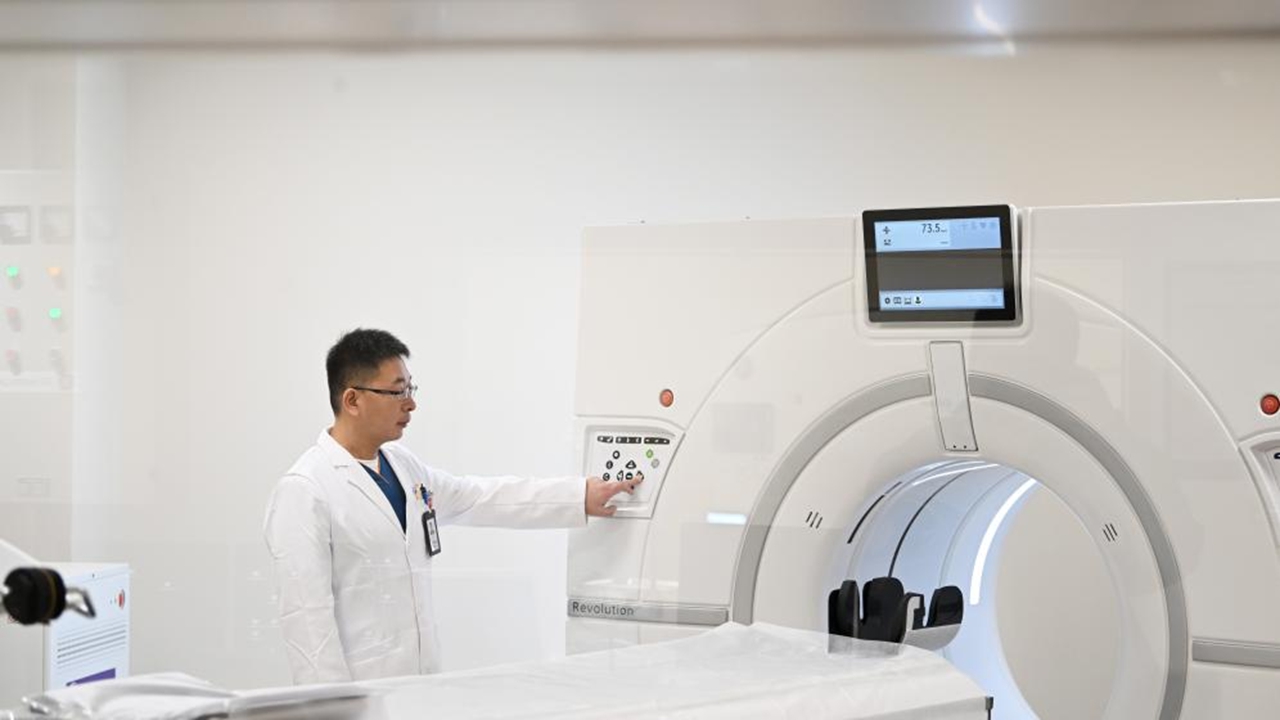Foreign tertiary general hospital gets license
Writer: | Editor: Lin Qiuying | From: Shenzhen Daily | Updated: 2024-12-18
The first business license for a wholly foreign-owned tertiary general hospital was awarded in Tianjin, North China on Monday, since China began to allow such hospitals last month in a move to further open up its medical services sector.

A staff member checks medical facilities at the Perennial General Hospital Tianjin in north China's Tianjin Municipality on Dec. 16. Xinhua
The hospital, with 500 beds, will be invested and built by Singapore Perennial Holdings. Located in Xiqing District near the Tianjin South Railway Station, the hospital expects to serve patients not just in Tianjin, but from the Beijing-Tianjin-Hebei region as well.
It will be staffed with an international team of medical professionals, working in such departments as orthopedics, immune diseases, cardiovascular diseases and oncology, among others.
The hospital will need to secure a number of administrative permits before officially opening and taking in patients, the China Central Television reported.
Perennial Holdings said the hospital, at a total investment of 1 billion yuan (US$137 million), is expected to commence operations soon.
The hospital will also have an international department that focuses on providing customized medical services such as chronic disease management and rehabilitation.
In November, the National Health Commission (NHC) and three other government departments issued a pilot work plan to grant approval of wholly foreign-owned hospitals to the cities of Beijing, Tianjin, Shanghai, Nanjing, Suzhou, Fuzhou, Guangzhou and Shenzhen, as well as the island province of Hainan.
According to the NHC, the nine pilot regions in the program are home to dense populations and robust health demand, accounting for about over 45% of China’s utilized foreign capital.
Earlier this month, Shenzhen’s government announced that Luye Medical Group has signed an agreement with the city's health commission to establish an international medical headquarters and a wholly foreign-owned specialty hospital in the city.
The China Research Center on Aging predicts that the silver economy, which include tourism, food, elderly care, healthcare and financial services industries, could grow from its current value of 7 trillion yuan to 30 trillion yuan by 2035, as reported by Xinhua.